Endless reading | Fan Shitao: Face the Chinese question: The origin of a left -wing bookstore style
Author:Bookstore Time:2022.09.23

Life needs reading and "Reading"
People do not read, they still do at night

Editor's press.
The third part of the "Three Stores History" is about the origin of the new knowledge bookstore style and their own problems. The author has the formation of Xinzhi Bookstores, tracing the monthly and China Rural Economic Research Association, and then points the source to Chen Hansheng. Chen Hansheng and his academic partners represent the work of studying Chinese issues and seeking Chinese economic and social progress, not simply translating the original Marxist works. This represents a certain academic quality of the left -wing intellectual industry at that time.
/Facing China Questions:/
/The origin of a left -wing bookstore style/
Wen | Fan Shitao
("Reading" 2022 new issue)
The Xinzhi Bookstore was founded in 1935. Like the Life Bookstore and Reading Publishing House, it was one of the famous left -wing bookstores in the Republic of China (at the time, called "Progressive Bookstore"). In 1948, the three bookstores established a life · Reading · Xinzhi Sanlian Bookstore General Management Office and the Hong Kong joint distribution office in Hong Kong. This is the beginning of the Sanlian Bookstore.
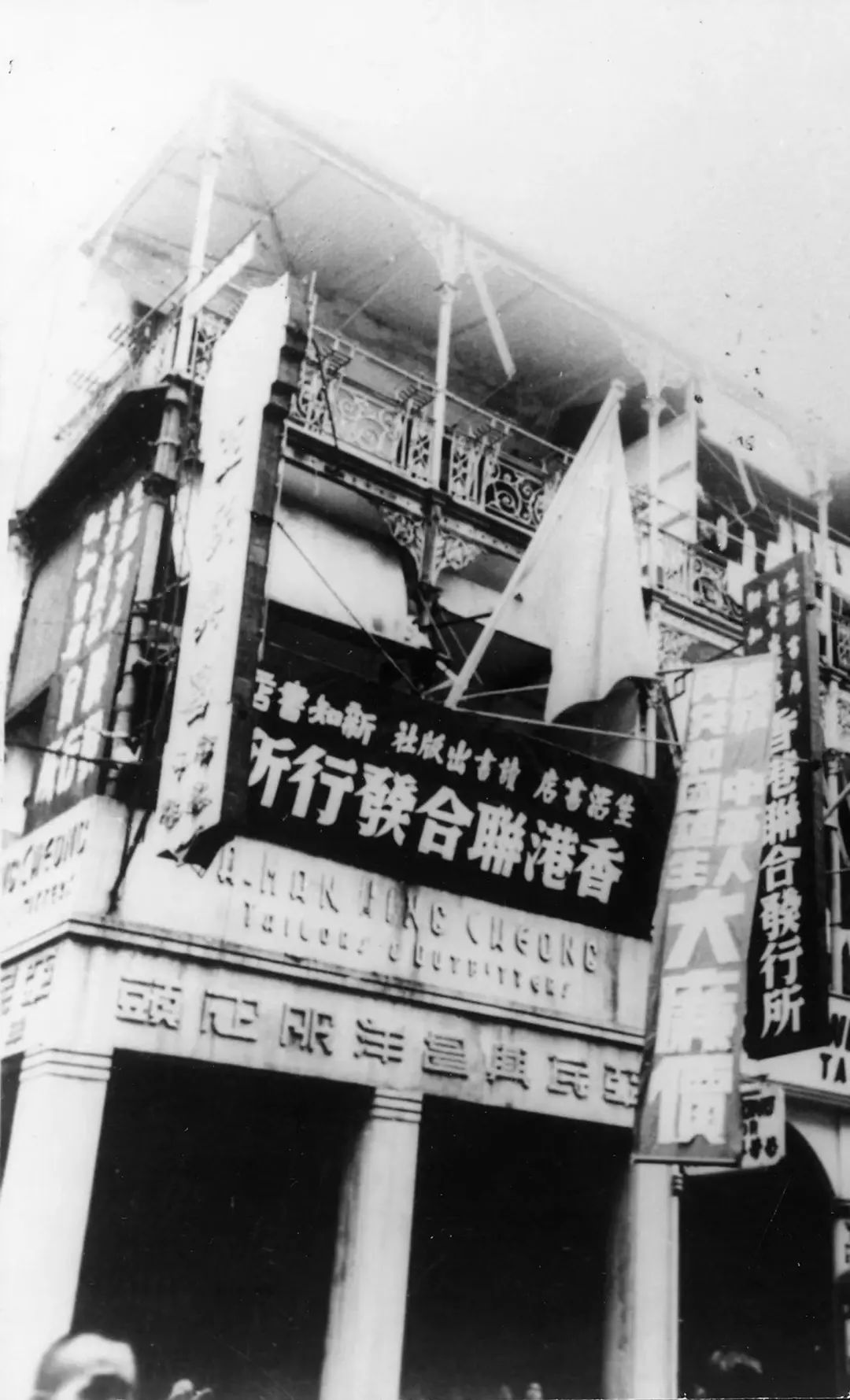
Life Bookstore, Reading Publishing House, Xinzhi Bookstore Hong Kong Joint Distribution Office was taken in 1948 (Source: mp.weixin.qq.com)
The new knowledge bookstore played "the role of the main responsible responsible person in the Kuomintang Rule of Ruling and Hong Kong", but did not focus on classic works, but emphasized the close combination of social science theory and the actual situation of China, facing China's social and economic issues directly Find development path and solution. This style was actually established before the establishment of the bookstore. To explain this, we must not talk about the mother body of the newly known bookstore China Rural Economic Research Association and its founder and soul figure Chen Hansheng.
In his early years, Chen Hansheng successively trained in Western history of the University of Pomona, the University of Chicago, Harvard, and University of Berlin. He returned to China as a professor at the Department of History of Peking University in 1924. He taught the history of Europe and the United States, the history of Europe and the United States, the history of European and American history, etc. course. Since 1926, colleagues Li Dazhao and the Soviet ambassador to China introduced to the communist international underground work. During this period, Chen Hansheng met Pyotr Grinevich, an expert in the Soviet Union to China, to learn and discuss "Capital" together, and "only made me understand the real history." "Capital Theory" is a huge book. It is not easy to read the original Western writings and understand that it is not easy. Therefore, although this book has been mentioned and introduced by the Chinese people in the late Qing Dynasty, Chen Hansheng is likely to be the earliest Chinese scholar. Due to the experience of learning and discussing "Capital" with Gronevich, Chen Hansheng said in his later years that Ge's was "the earliest friend who affected my thoughts."
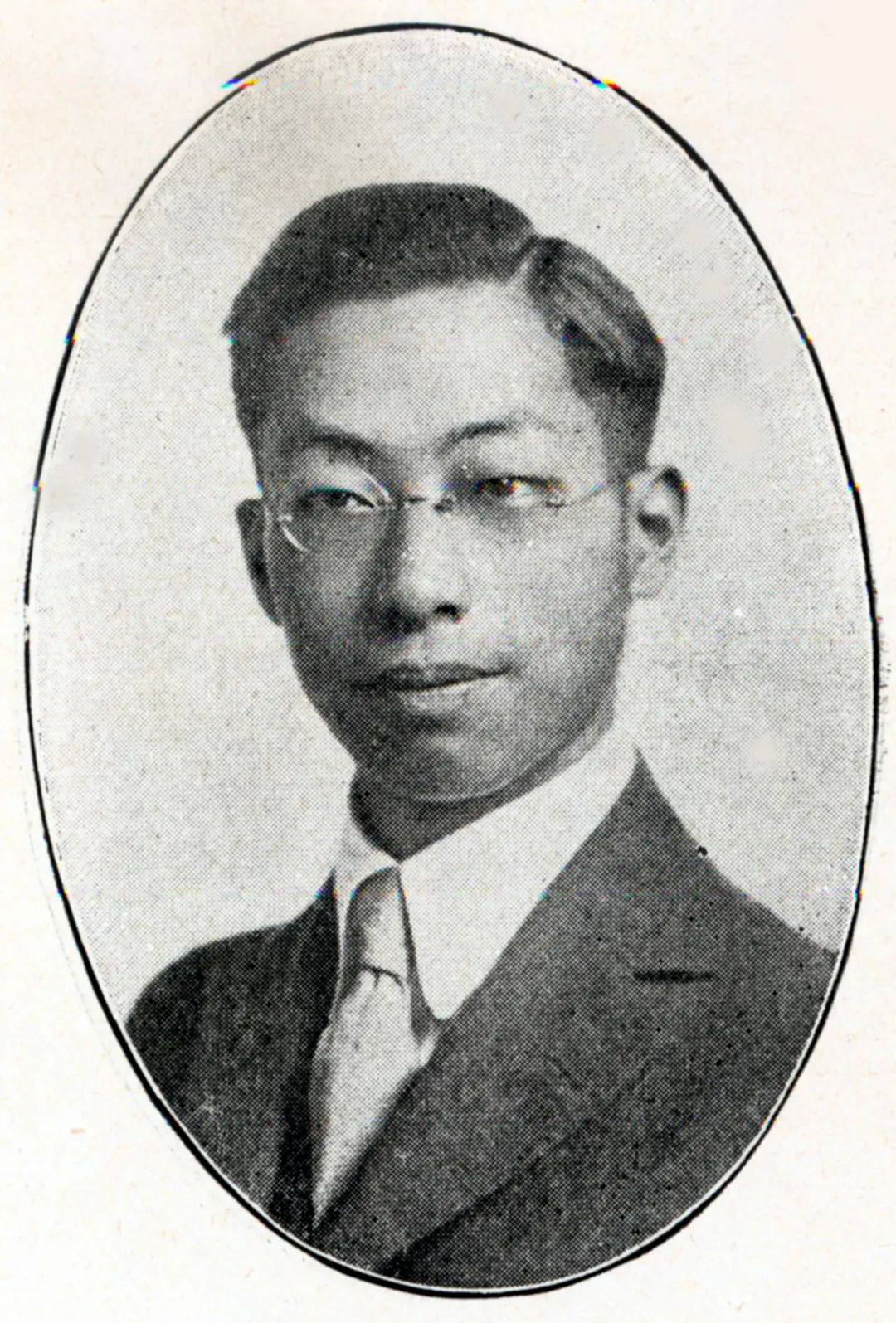
Chen Hansheng (source: lwr.tsinghu.edu.cn) during the teachings of Peking University)
Although Chen Hansheng carefully studied the Western version of "Capital Theory", his main energy was not in the translation and introduction of "Capital". The reason is that this work provides theoretical help for him to think about world history, but it does not provide a direct answer to the real China question. "Capital" is based on capitalist production methods. As the first of the book, the first part of the book pointed out, "the wealth of the society where the capitalist production method occupies the dominant status is manifested as the" huge commodity accumulation '". The concepts of labor, labor value and surplus value are gradually deepened to reveal the inherent logic and ins and outs of the capitalist production method. For Chen Hansheng, there is no ready -made answer in China, and the analysis of capitalist production methods should not be used directly to Chinese society.
After the failure of the Great Revolution in 1927, Chen Hansheng was exiled in Moscow and visited the International Rural Research Institute of Farmers International. The staff of the Soviet Consulate General in Shanghai and Hungarian economist Mazhar had started to write his masterpiece "Research on China's Rural Economic Economic Research" during China. Back to Moscow at the beginning of the year, he also went to the International Rural Research Institute to continue to engage in China's rural economic research. The two of them often argue about the nature of China's rural and Chinese society. In the process of dispute, he was inevitably quoted by the scriptures, and what troubled Chen Hansheng was that he did not really understand the actual situation of rural China at the time, thus generating the idea of clarifying China's actual situation through field investigations. Shortly after returning to China, he was the director of the Sociology Group of the Institute of Social Science at the invitation of Cai Yuanpei, the dean of the National Academy of Sciences, and took the lead in the investigation of the Chinese rural economy.

"Differences and Significance of Mu", included in the "Institute of Social Sciences, Institute of Social Sciences of the National Central Academy", 1929, No. 1. In 1929, Chen Hansheng presided over the formulation of the Wuxi Rural Economic Survey Plan and published a special discussion "Differences of the Mu" (Source: lwr.tsinghua.edu.cn)
Studying the reason why Chinese society starts with the rural economy is because to answer "what society is China" and need to study China's past and current production methods. Regardless of or at the time, China's production methods and production relations are still rural and agricultural. In the words of Chen Hansheng: "China's agricultural economy is not only the basis of Chinese social history, but also the basis of all the history of China. . From the relationship between the agricultural economy, it can determine the similarities and differences between the nature of society. " Shortly after the China Economic Survey of China on July 27, Chen Hansheng discovered that "the fact that the economy of Chinese society today is mostly the relationship between the capitalist system. ; My so -called countryside, its nature is not like country. That is, compared with the former European capitalist society, the urban comes are not Polis (cities) and Compagna Communis (pressed: the Republic of Genoa); : Village organizations in Tsarist Russia) and MANOR (Press: Middle Ages Manor) Comparable "(Chen Han Sheng:" The Hair of Rural Economic Research in China ", edited by Chen Hansheng, Xue Muqiao, Feng Hefa: The second series of" Rural China before liberation ", China Looking forward to the publishing house, 1987, pages 3). Because the Chinese economy is not "huge commodity accumulation", China is not a society where capitalist production methods are developed. "Capital Theory" can only be used as a reference book without providing ready -made answers. In the same reason, in his opinion, the research method of mainstream agricultural economics that uses farmers' profits to maximize the profit of farmers is not appropriate. In order to understand China's production methods and social nature, it is most needed to observe and understand the rural economy of China's rural economy under the grand program of the multinational comparison of socioeconomic history.
Life Bookstores, Reading Publishing House, Xinzhi Bookstore's early published "Capital" and "Popular Philosophy" and other books
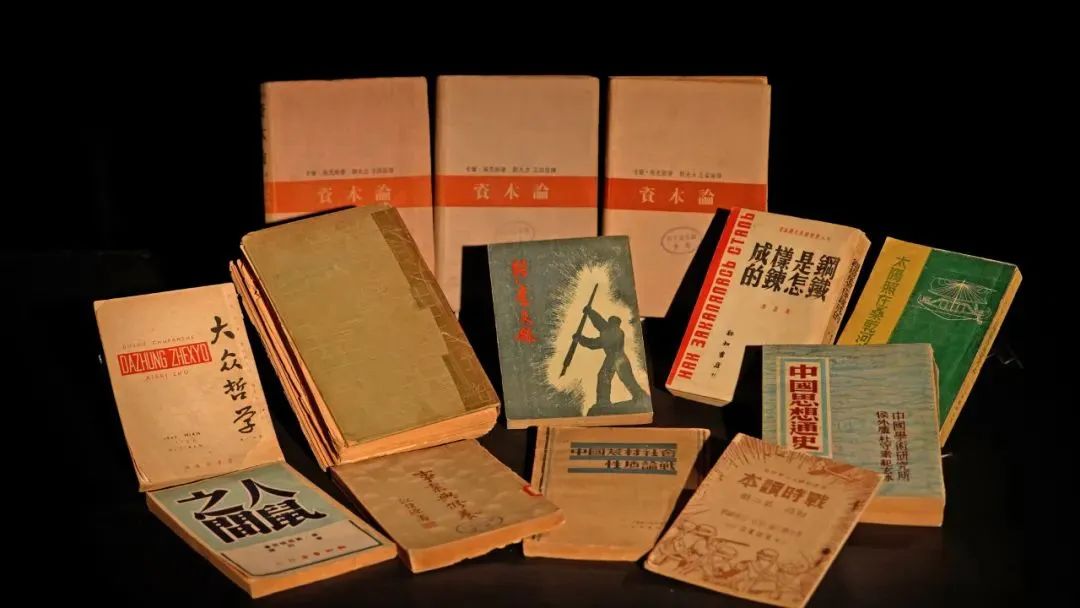
(Source: mp.weixin.qq.com)
Due to the complicated rural economic situation in China, Chen Hansheng believes that rural economic surveys are "inevitable." The standard knowledge of the divided area is "lacking", and "the last resort can only start with the special place in the rural economy." Wuxi and Hebei Baoding in Jiangsu is the first area where Chen Hansheng launched a field survey of rural economy. While conducting a field survey, Chen Hansheng also actively promoted theoretical translation and publication including Kitzki and Lenin. Under the principle of combining theoretical and practical methodology, the classification framework of Chinese Marxist farmers and rural economic research paradigms were established. The main difference between this framework and research paradigm and "Capital Theory" is that the transitional Chinese economic structure that includes capitalist production methods, but more capitalist components is the main research object. Rural, not a large machine.
In the process of hosting a field survey of rural economy, Chen Hansheng established a left -wing social science research team. His backbones include Wang Yinsheng, Zhang Xichang, Xue Muqiao, Qian Junrui, Sun Yefang, Jiang Junchen and others. Like Chen Hansheng, they are studying and writing under the framework of Marxism. However, although they have Marxist theoretical literacy, the focus of work is not based on the translation introduction centered on "spread the truth of Marxism", but based on the principles of combining theory and reality, tracking and investigating and studying the reality of the countryside and China's economic reality. question.
When Chen Hansheng presided over China's rural economic survey, China's industrialization obstacles were heavy, and the rural economy was facing a serious crisis of internal and external difficulties, leading to serious social problems. As a reporter of such bad news, he faces various social pressure and obstacles. Not only that, he and the team in the team secretly engaged in dangerous underground revolution activities. When Chen Hansheng felt that political stress might be abolished halfway, in order to maintain the team's continued work, he prepared to launch the China Rural Economic Research Association in September 1932, and completed all the registration procedures for registration in various departments of the National Government in December 1932. After leaving the National Institute of Research, the team is still in the formal legal academic group organization, and continues to work together under the common research paradigm. Chen Hansheng has always served as the chairman of the Council of the China Rural Economic Research Association. Daily work is chaired by Chen Hongjin, Xue Muqiao, Qian Jiaju, Jiang Junchen, Zhang Xichang, and Wang Yinsheng. In the 1940s, there were more than a thousand members of the China Rural Economic Research Association.
The cover of the "Rural Rural" issue (Source: lwr.tsinghu.edu.cn)
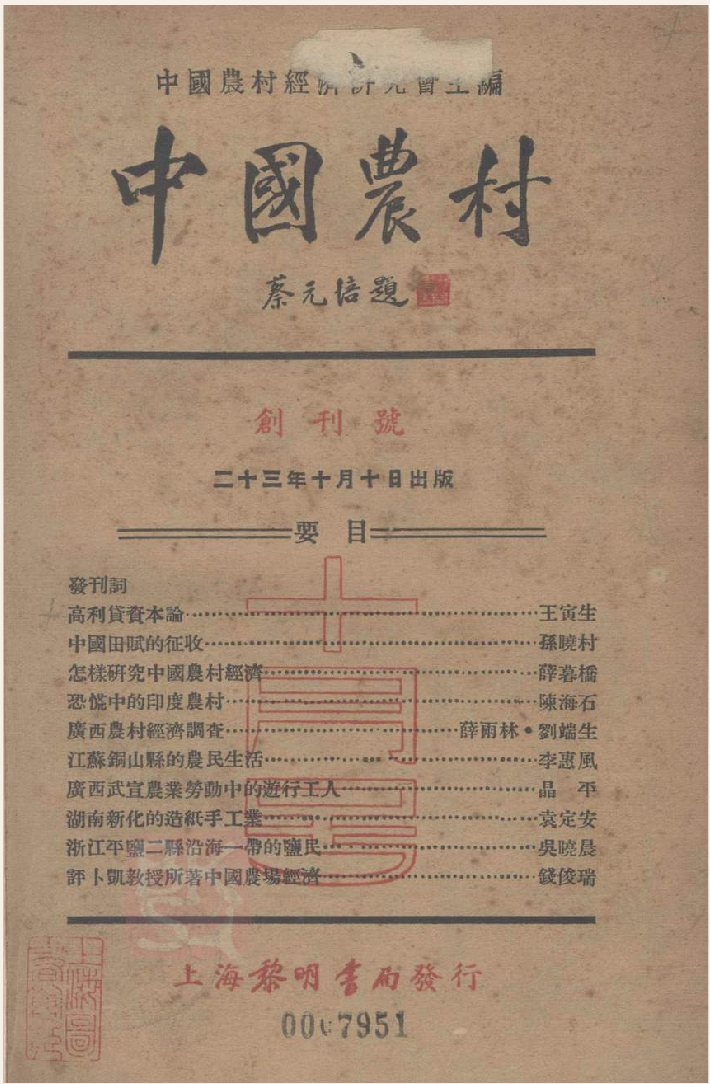
If the life bookstore originated from the "Life" weekly, the reading publishing house originated from "Reading Life", and the Xinzhi Bookstore is also a publication and a bookstore. The source is the magazine of the China Rural Economic Research Association's publication.
The publication of the "Rural China" magazine released by the China Rural Economic Research Association (1934 to 1943), Xue Muqiao was the editor -in -chief of the actual innovation. In the first year of the publication, "Rural China" magazine carried out the well -known Chinese rural social nature in modern Chinese history. Prior to this, China ’s conclusion of China’ s semi -feudal and semi -colonial society had resolved in the sixth National Congress of the Communist Party of China, but the resolution was not public and was principled. In the process of theory, Xue Muqiao, Qian Junrui and others widely used the information obtained by Chen Hansheng during the China Economic Survey of the Chinese Rural Economic Survey, so that the combination of theory and the actual experience of the theory and experience was combined. After the rural social nature of the Chinese rural areas, the semi -feudal and semi -colonial social theory has developed into a full -wing social theory, and has reached a wide consensus in the left -wing social science community. This is already a parallel theory that is different from "Capital" based on capitalist production methods as the main research object. In addition to theoretical arguments, "Rural China" also advocates a non -fiction type writing, the so -called "rural communication". Xue Muqiao believes that the actual value of "rural communication" is often above the estimate of ordinary people. It is the most valuable reference material for studying Chinese rural issues. " The first work, "A Map of the Decline of the Rural Rural Rural Rural Rural" under the guidance of Chen Hansheng, reported that his social and economic developments in Wuxi Lishe Town, his hometown were actually the founding of non -fiction writing of the China Rural Economic Research Association. During the editor -in -chief of Xue Muqiao, the "Rural Communication" column has always been retained and welcomed in society. The well -known economist Yu Guangyuan talked about that these rural communications had an extremely important impact on their "thought progress".
Xue Muqiao, Thai Dou (Source: baike.baidu.com)
The first volume of "Rural China" was originally published by the Liming Book Bureau. However, with the deepening of the Japanese invasion of China, the National Government's subsequent obedience to Japan stipulates that no anti -Japanese or anti -Japanese characters may be appeared in publications. The China Rural Economic Research Association has a strong anti -emperor's position, which seems particularly dazzling in the crisis. Therefore, the Liming Book Bureau is unwilling to undertake the publishing and distribution of "Rural China". The Liming Books no longer renew the contract. The cause of the China Rural Economic Research Association is facing the risk of death. The Research Association hopes that the life bookstore will accept the publication of "Rural China" magazine, but the life bookstore is in the center of the vortex due to the "New Life" incident and is unwilling to do so. As a result, the China Rural Economic Research Association decided to launch a bookstore, publishing "Rural China" by itself, and promoting Xu Xuehan and Hua Ying to apply for the preparation. Sun Xiaocun, the chairman of the Editorial Committee of Rural China, served in the Ministry of Finance at the time, and he was the promoter to raise shares in Nanjing.

In 1935, Xinzhi Publishing Cooperative held the first general meeting. The conference passed the articles of association to determine the self -raised funds to establish a new knowledge publishing cooperative by collecting funds, which is called the "Xinzhi Bookstore". The name of "New Knowledge" is proposed by Xu Xuehan, with two layers of meaning: one is to introduce new knowledge and new ideas; the other is that the old rain and new knowledge are dependent on both. Bookstores must rely on old friends and new friends. Members voted for Qian Junrui, Sun Xiaocun, Zhang Zhongshi, Zhang Xichang, and Xu Xuehan as directors of councils, and Cao Liang, Shen Zijiu, and Yu Qingtang were supervised. There are more than fourteen years independent of Xinzhi Bookstores. During this period, more than 230 people participated in the work of Xinzhi Bookstores. There were more than ten types of journals and about 400 books.
Chen Hansheng talked with American historian Stertano, 1985 (Source: mbachina.com)
Among the publications of Xinzhi Bookstores, the Chinese Rural Economic Research Association and core members are the most distinctive. Shortly after the establishment of the bookstore, Xue Muqiao, the editor -in -chief of "Rural China", was invited to publish the book "Chinese Rural Social Nature Theory" in the name of the China Rural Economic Research Association. There are not many argument articles included in this book. It is not sufficient to discuss in this book based on this book, but the articles received are representative in the argument. Until now, this book has been widely quoted in the history of modern social sciences, party history and revolutionary history. Xue Muqiao's "Chinese Rural Economic Common Sense" and "Basic Knowledge of Rural Economic Base" have been published in the "Rural China" magazine in a column article. It is also published by Xinzhi Bookstore after the collection of books. Representative works. The most widely issued bookstore was Xue Muqiao's book "Economics". This book was originally a textbook written by Xue Muqiao in 1939 for the New Fourth Army's anti -Japanese military and political training. It was published by the Xinzhi Bookstore. In 1948, Liu Shaoqi and the North China People's Government were approved to become a middle school textbook. The translations of the Economics Textbooks are published, with more than one hundred versions. One of the main reason why this book is popular throughout the country is that the book systematically emphasizes the Chinese economic structural issues emphasized in the chapters of Chen Hansheng and the China Rural Economic Research Association, and established a conclusion of semi -colonial and semi -feudal society.
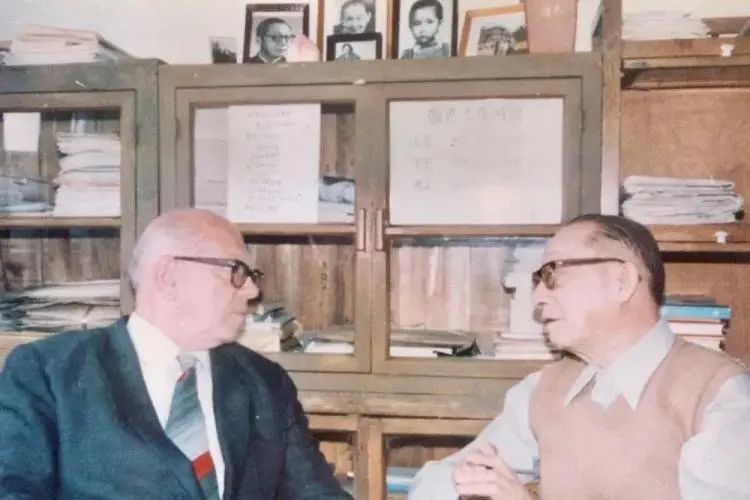
In general, friends of Chen Hansheng, Xue Muqiao and Xinzhi Bookstore attach importance to economic facts and practical experience. Marx pointed out in the "Outline of Ferbaha" that "philosophers only explain the world in different ways, and the problem is to change the world." If the fundamental purpose of improving the world as the research, the scientific understanding of economic reality will always occupy a priority in its thinking and actions. In a transitional society that has not been decided, its economic structure must be complicated and diverse. Study and analysis of its constitutional changes has become a necessary step in China's overall trend of China's economic and social trends. Therefore, the work of Xinzhi Bookstore can be said to be complementary with the "Capital Theory" translated and published by the Reading Press, representing the efforts of Chinese left -wing economists to face reality and serve the society. In the late 1950s, Chen Hansheng and Wu Juenong investigated in rural areas
(Source: lwr.tsinghu.edu.cn)
Interestingly, this method of starting with the scientific abstraction of "Capital" is still playing a role in contemporary China. Among them, Xue Muqiao, the editor -in -chief of "Rural China", is one of the first two authors of China's first socialist primary theory. The coexisting commodity economy is the goal of reform. This has played a historic role that is difficult to replace in order to clarify the goal of China's economic transformation and implementation path. This can be regarded as the continuation of the China Rural Economic Research Association, which has the purpose of studying the Chinese economic structure established by Chen Han Sheng, and can also be regarded as the left wing of China. Economists face the phased answers to the Chinese question under the same research paradigm.
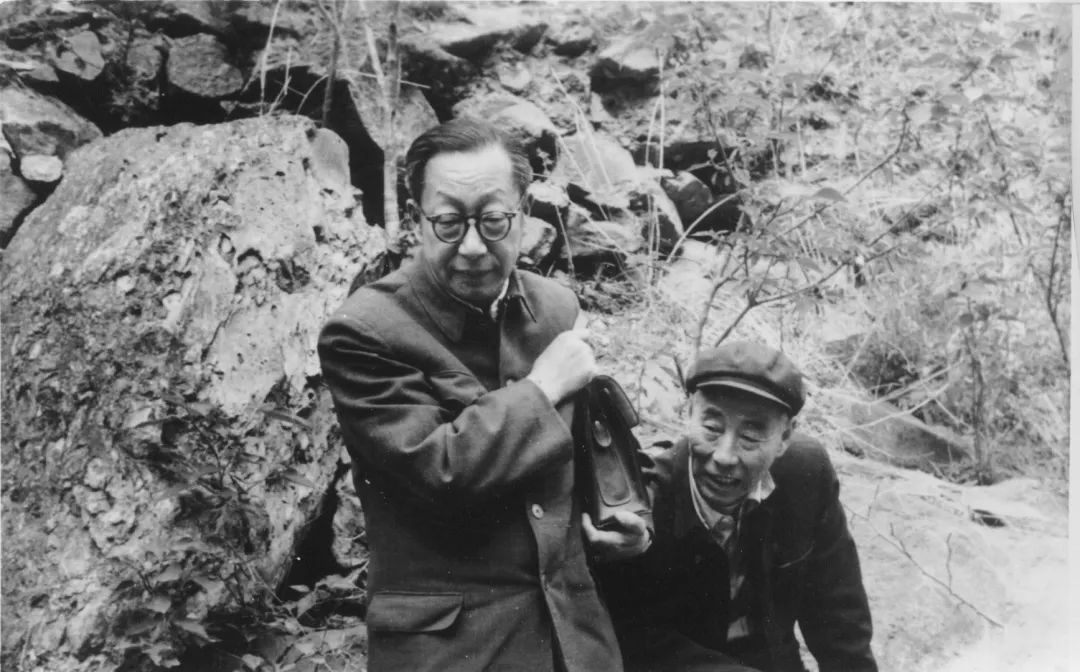
After a long -term high -speed growth, the Chinese economy has far exceeded the 1930s or 1980s. However, it is still a challenge facing Chinese social scientists.
* The pictures in the text are all from the Internet
* The picture in the article is not indicated by the source, all of which are provided by the author
"Reading" has just opened the video number,
Welcome everyone to click below to follow
We will update each month from time to time ——
Reading ideas, see "Reading"
读 The copyright of the article is owned by "Reading" magazine

Reprinted the authorization, please contact the background
Related wonderful articles
Feng Miao: The Knowledge Revolution of "Reading Life" and urban workers
Fan Xue: Bookstore's subjectivity: knowledge, cadre and system
Zhao Guoxin: The rise and fall of the British Left School Reading Club
Wang Hui: Keywords and cultural changes
Xu Jilin: In that time, there is a magazine and a group of scholars
WeChat ordering
单 WeChat public account menu interface ➡ Reading bookstore
下 Click "Read the original text" below each graphic
Enter the store homepage
Post office subscription
Search for WeChat public account China Post WeChat Office → Service → Newspaper Subscription
Search "Reading" to subscribe to
Postal subscription address:
http://bk.11185.cn/index.do#
Mail order
Reader service hotline:
010-84050425/51
Post order address: Block B "Reading", Block B, Xiaoguang, Chaoyang District, Beijing
Postcode: 100125
E-mail: [email protected]
⬅ Press the two -dimensional code
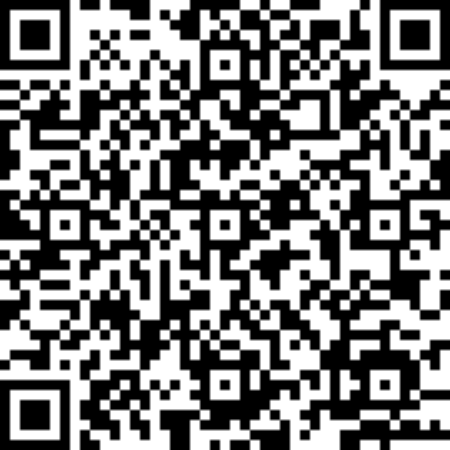
- END -
Yuecai New Art, the Guangcai Young Show of the "Post -90s" local young artist
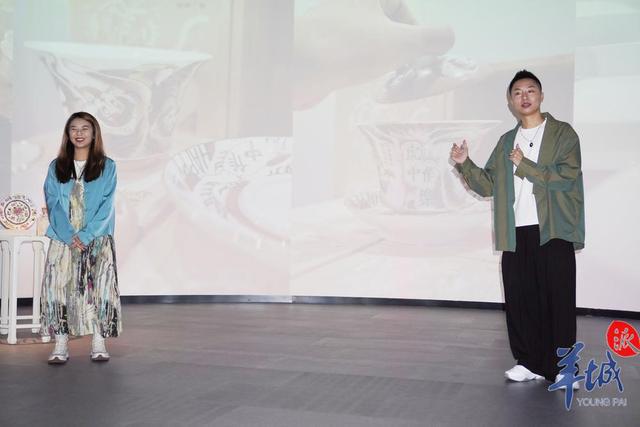
Text/Picture Yangcheng Evening News All Media Reporter Ma SiyongExperience a city,...
How do we read the classics today?Chinese Book Company organizes first -tier scholars to write a general letter to the public | Cultural observation
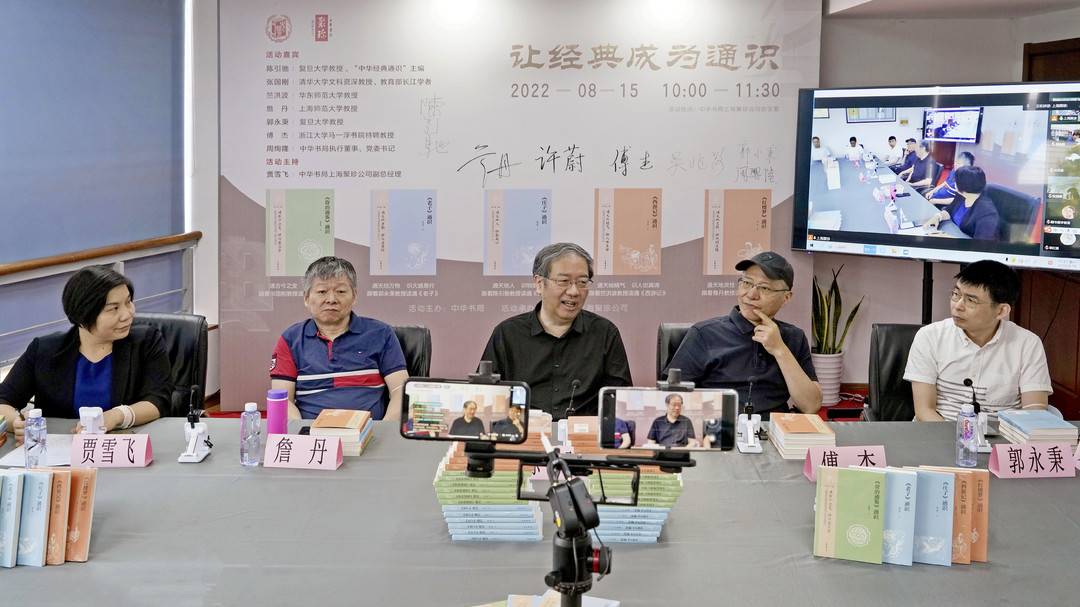
Cover news reporter Zhang JieMark Twain once said: Classics are books that everyon...